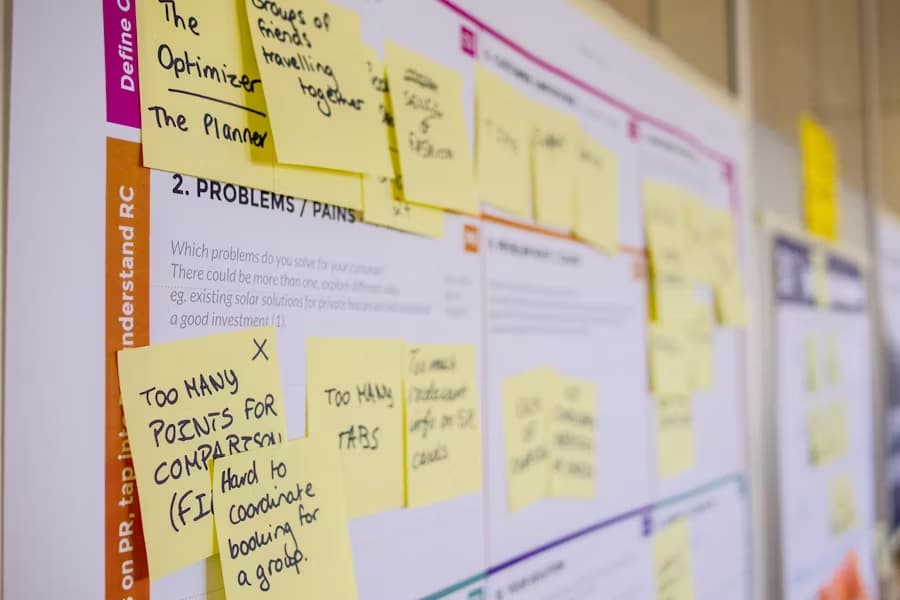Time management is a critical skill that can be particularly challenging for adults with ADHD. The struggle to stay organized, manage tasks, and be punctual can significantly impact daily life. However, with the right strategies and tools, it’s possible to overcome these challenges and improve time management skills. In this article, we will explore various challenges faced by individuals with ADHD in managing their time effectively and provide practical solutions to address each of these obstacles.
Challenge: Planning Too Many Activities
Planning too many activities can lead to overwhelming schedules and increased stress for individuals with ADHD. This challenge often results from over-committing or unrealistic expectations about what can be accomplished within a specific timeframe.
Solutions:
- Prioritize Tasks: Create a list of all planned activities and prioritize them based on urgency and importance. This will help in focusing on essential tasks and avoiding overcommitment;
- Use Time Blocking: Allocate specific time slots for each activity, ensuring that realistic time frames are assigned to tasks. This method helps in visualizing the available time and prevents over-scheduling;
- Learn to Say No: Practice setting boundaries and politely declining additional commitments when the schedule is already full. Saying no is crucial in maintaining a manageable workload.
Prioritization Matrix
| Task | Urgency (High/Medium/Low) | Importance (High/Medium/Low) | Priority |
|---|---|---|---|
| Example Task 1 | High | Medium | High |
| Example Task 2 | Low | High | Medium |
| Example Task 3 | Medium | Low | Low |
By utilizing this prioritization matrix, individuals can visually assess which tasks should take precedence, aiding in effective time management.
Challenge: Having What You Need to Get Out the Door on Time
Individuals with ADHD often struggle with gathering necessary items before leaving, leading to frequent delays and last-minute rushes.
Solutions:
- Create a Launch Pad: Designate a specific area at home as a “launch pad” where essential items such as keys, wallet, and other necessities are consistently placed. This habit ensures that everything needed is easily accessible before heading out;
- Preparation the Night Before: Prepare belongings and essentials the night before, including packing bags, selecting outfits, and organizing work materials. This reduces morning chaos and minimizes the risk of forgetting crucial items;
- Utilize Checklists: Develop checklists for daily essentials, work requirements, or specific outings. Referencing these lists helps in ensuring nothing vital is overlooked before leaving.
Daily Essentials Checklist
- Wallet;
- Keys;
- Phone;
- Work ID;
- Water bottle;
- Snacks.
By following this checklist, individuals can streamline their departure process and minimize the likelihood of forgetting important items.
Challenge: Having Too Much to Do in the Morning
Mornings can be particularly hectic for individuals with ADHD, often resulting in feeling rushed and disorganized, which can set a negative tone for the rest of the day.
Solutions:
- Establish Routine: Create a consistent morning routine that includes specific tasks such as waking up at the same time, engaging in physical activity, and allocating time for breakfast. A structured routine sets a positive tone for the day and reduces morning stress;
- Break Down Tasks: Divide morning tasks into smaller, manageable steps. Breaking down activities such as getting ready, preparing meals, and organizing belongings makes the process less overwhelming and more achievable;
- Set Alarms and Reminders: Use alarms or reminders on smartphones or other devices to prompt task completion and keep track of time. These prompts serve as helpful cues to stay on schedule and avoid running late.
Morning Routine Schedule
| Time | Activity |
|---|---|
| 6:30 AM | Wake Up |
| 6:45 AM | Exercise |
| 7:15 AM | Breakfast |
| 7:45 AM | Get Ready |
| 8:15 AM | Gather Belongings |
| 8:30 AM | Departure |
Following a structured morning routine, as outlined in the table above, helps in maintaining a sense of order and efficiency.
Alt: Animated people working next to a large stopwatch
Challenge: Lacking Internal Cues That Help You Judge the Passing of Time
Individuals with ADHD may struggle to accurately gauge the passage of time, leading to difficulties in estimating how long tasks take and managing their schedules effectively.
Solutions:
- Use Visual Timers: Incorporate visual timers or clocks with prominent displays to provide a clear representation of time passing. Visual aids help in improving time perception and staying on track with scheduled activities;
- Set Time Limits for Tasks: Assign specific time limits to tasks and activities, encouraging a more focused and efficient approach. This practice assists in better time management and prevents tasks from consuming excessive time;
- Regularly Check the Clock: Develop a habit of frequently checking the time throughout the day to maintain awareness of elapsed time and upcoming deadlines. This simple practice aids in staying mindful of time passing.
Time Perception Improvement Techniques
- Utilize visual timers;
- Set specific time limits for tasks;
- Regularly check the clock.
By implementing these techniques, individuals can enhance their time perception and develop a more accurate understanding of time passage.
Challenge: Estimating How Long Specific Tasks Take
Difficulty in estimating the duration of tasks can lead to poor planning and time mismanagement, causing frustration and stress.
Solutions:
- Practice Time Tracking: Record the actual time taken for various routine tasks to gain a better understanding of their duration. This practice helps in creating more accurate schedules and allocating appropriate time for activities;
- Use Technology Tools: Leverage time management apps and tools that offer features such as task tracking, time logging, and scheduling assistance. These resources aid in monitoring and optimizing time usage;
- Seek Feedback: Request feedback from peers or colleagues regarding time estimates for specific tasks. External input can provide valuable insights for refining time estimations and improving overall planning.
Time Tracking Log
| Task | Estimated Time (minutes) | Actual Time (minutes) | Discrepancy |
|---|---|---|---|
| Example Task 1 | 30 | 35 | +5 minutes |
| Example Task 2 | 45 | 40 | -5 minutes |
| Example Task 3 | 20 | 25 | +5 minutes |
Maintaining a time tracking log, as illustrated in the table above, enables individuals to compare estimated versus actual time spent, facilitating improved time management.
Conclusion
Effective time management is an essential skill for individuals with ADHD, and overcoming the associated challenges requires a combination of practical strategies and consistent habits. By implementing prioritization techniques, establishing routines, utilizing visual aids, and leveraging technology tools, individuals can enhance their time management skills and navigate daily tasks more efficiently. With dedication and persistence, it is possible for adults with ADHD to develop effective time management strategies that contribute to a more organized and balanced lifestyle.



